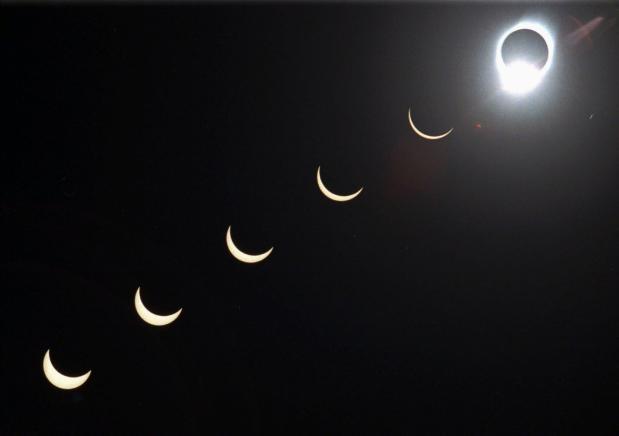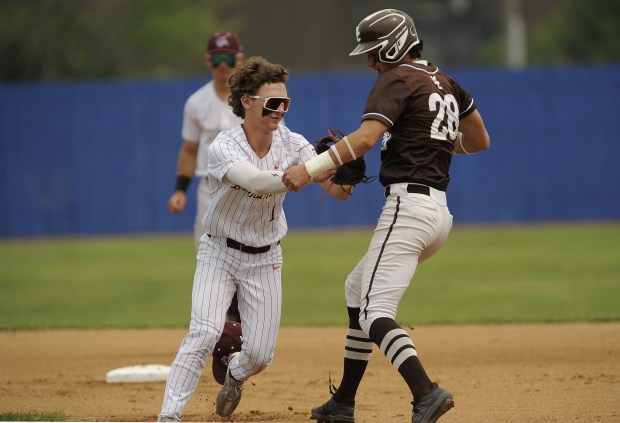Jon Aros has been drawn to the stars since the first time he saw the rings of Saturn through the lens of his first telescope — a gift from his mom and uncle.
“Ever since then, I was hooked. It has become a complete obsession,” Aros said.
Today, almost four decades later, the 50-year-old Indiana University Northwest adjunct professor of chemistry has traveled the globe to capture celestial events like Monday’s total solar eclipse to experience the natural phenomena first-hand and to collect data and capture images via his sophisticated camera equipment.
Aros said Friday he was watching the weather closely and had not yet decided where he would head to ensure the best chance of capturing the eclipse without cloud cover. He planned to make his decision Sunday morning.
“I have reservations from … Texas all the way to Buffalo, New York. Every place is under clouds. This time of year, the first week in April, 75% of the country is under clouds. The weather is a variable that is so difficult to predict,” Aros said.
People will flock to the path of totality throughout North America — including a large swath crossing parts of central and southern Indiana — to witness the last total eclipse to cross the continental U.S. until August 2044.
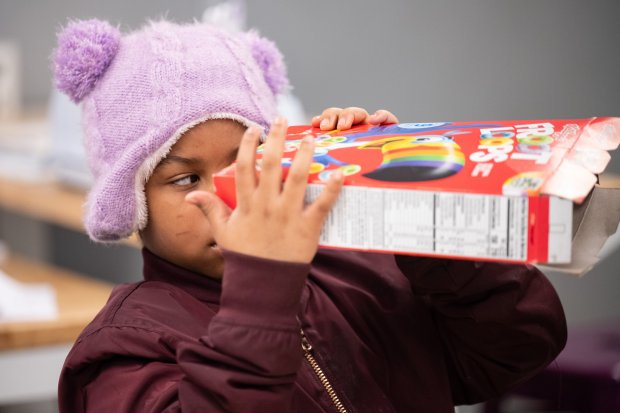
Starting just after 3 p.m. central time, the moon will be in front of the sun, briefly casting darkness over a southwest-to-northeast swath across North America, covering 13 states from Texas to Maine.
“In terms of astronomy, I think it’s good to understand the phenomena we see. People are trying to make an attempt to understand it,” Aros said.
“I think historically … as a race on this planet, people always paid attention to astronomical events,” Aros said, adding for example people have always paid attention to the sky to determine things like when to plant the crops.
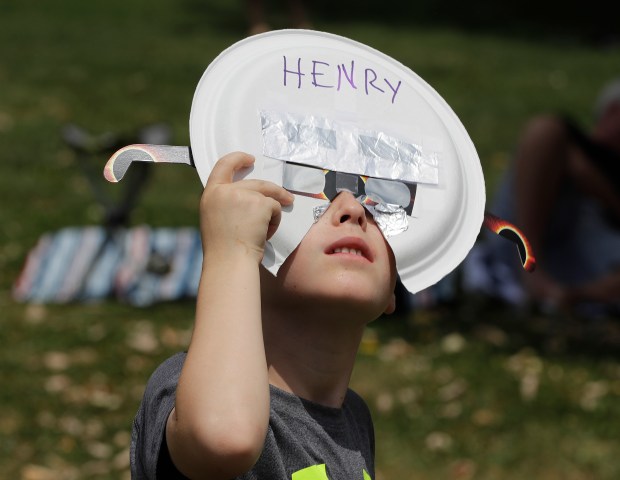
“It’s human nature to want to understand the universe,” Aros said.
Aros has seen the vernal equinox and other natural phenomena at places like Stonehenge in Salisbury, England, the Serpent Mound in Peebles, Ohio, and Chichén Itzá in Yucatan, Mexico, and the slot canyons in America’s West.
The experienced eclipse follower advised those traveling to see the eclipse to pay attention to the road and their fuel supply. Also, be prepared with water and snacks. The influx of traffic can cause travel times to double or more in the most desirable viewing areas.
Evelyn Constanza, 33, of Chicago helps her son, Danny Guerrero, 7, watch his first solar eclipse on August 21, 2017 at the Portage Lakefront Park. (Meredith Colias/Post-Tribune)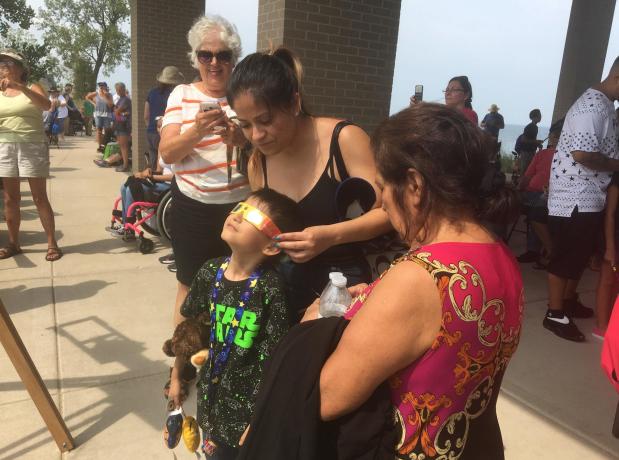
“You have to prepare,” Aros said. Viewing the eclipse also means having the proper eyewear — either the approved mylar solar glasses or welder’s glass are safe ways to view the eclipse. The only safe time to look without the glasses is the very brief period of totality, when the solar disc is completely covered.
“Once the event begins to the end you need eye protection. The brightening just before and just coming out of the event can damage the eyes,” Aros said.
He said people who view the eclipse without protective eyewear may think their eyes are unharmed but often the effect is not necessarily immediate. The eclipse can cause damage to the back of the eyes, causing a shadowing effect that degrades vision.
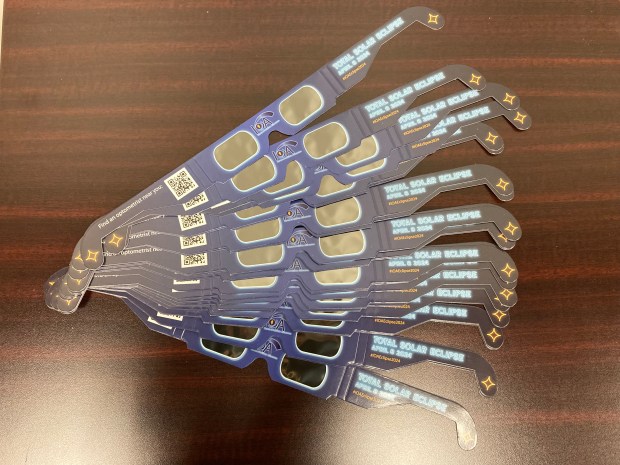
“If you look through a telescope or camera lens of any kind, it is absolutely imperative to use a protective filter. Any object that magnifies light can cause serious and permanent damage immediately,” Aros said.
Indiana Gov. Eric Holcomb declared a state of emergency in anticipation of the influx of eclipse viewers. Populations of some small towns are expected to double or more during the peak viewing hours. In parts of central and southern Indiana, schools and government offices are closed, prompting some election boards to extend voter registration hours. Voter registration in Indiana ends April 8. Registration deadlines in Lake and Porter counties are unchanged by the eclipse as their offices will be open on Monday.
Early voting starts Tuesday.
Kaesy Seaman of Crown Point said she will be keeping her kids home from school Monday in order to attempt to view the eclipse in the path of totality. Her boyfriend drove to Missouri to see totality in 2017.
“He was really impressed and said it was worthwhile to go to see it,” she said.
The group planned to travel Sunday to Louisville, Kentucky, where they’ll stay at an Airbnb rental about an hour south of their desired viewing spot of Bloomington. Seaman said when she looked for rooms a few weeks ago it was hard to find accommodations any closer. They plan to enjoy the city the night before and travel into Bloomington in the morning where they will watch the eclipse from a park.
“I’m excited. We’re crossing our fingers. Weather is unpredictable. We will cross our fingers and have a good time,” she said.
Three generations of DeMotte resident Leah Crim’s family will be viewing the eclipse in Terre Haute, where her twin sons share an apartment. She and her husband will be joined by her parents and his mom. They all plan on hanging out at the boy’s apartment.
“Their apartment has a huge parking lot with lots of space for visitors and has a clear view of the sky. We are bringing a picnic potluck lunch and are going to tailgate in their parking lot and watch the eclipse together,” Crim said.
The city’s eclipse festival “Total Eclipse of the Haute” is within walking distance, so they may head there as well.
“We have been planning to do this since January and had originally tried to get a hotel room for the weekend but they were told out back in January for this weekend,” Crim said.
“I thought it would be a fun thing for all of us to do together that we would remember forever. My kids were really close to their grandparents growing up and since my kids moved away five years ago for college and ended up staying there, we rarely get to spend time together as a family anymore.
“So this seemed like the perfect opportunity for us to spend time hanging out together,” Crim said.


